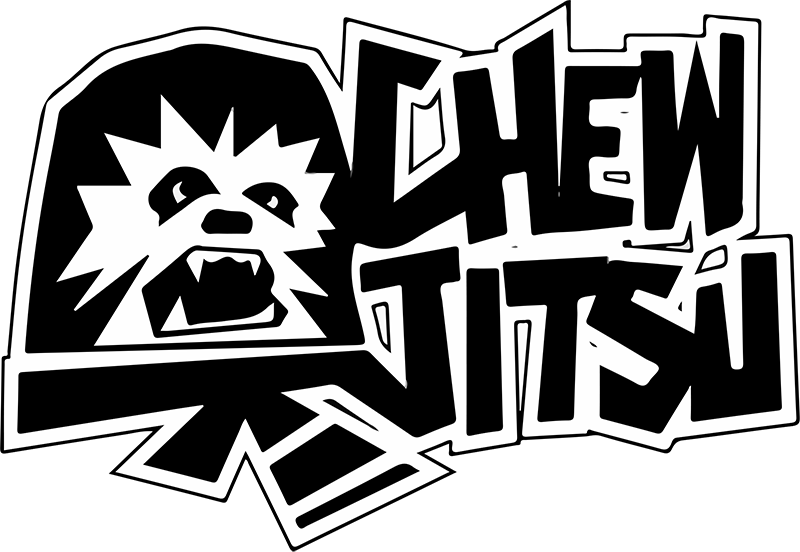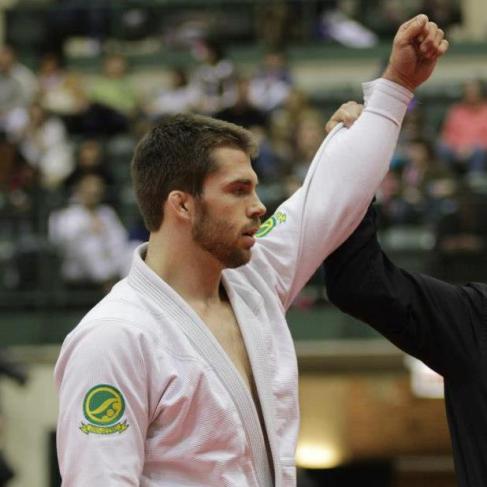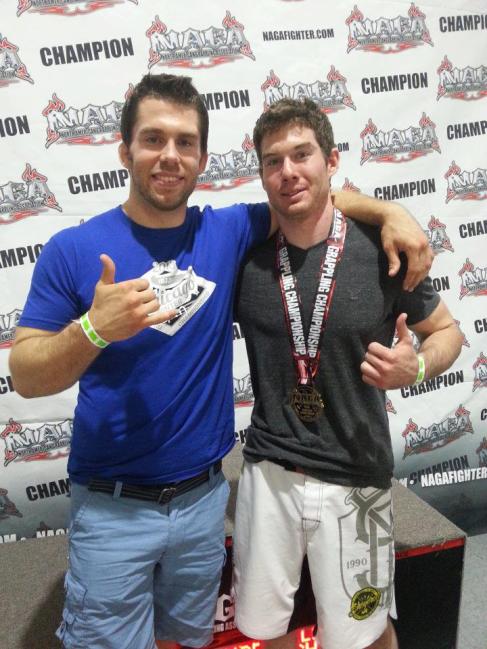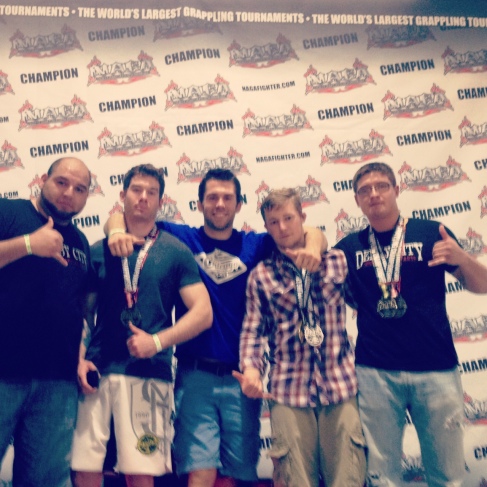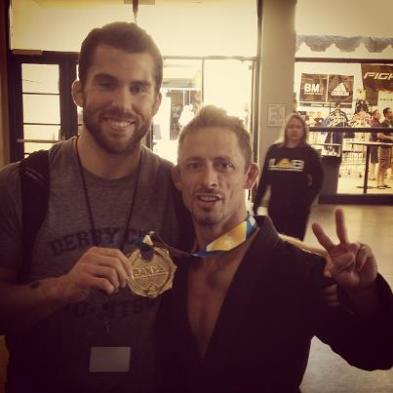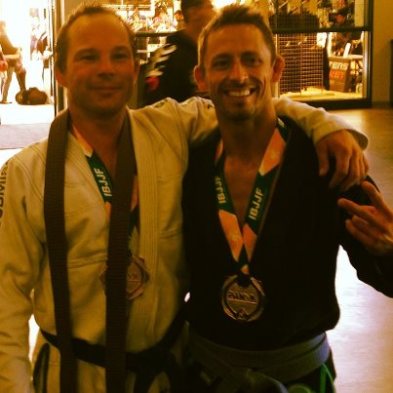A long list of reasons why people train BJJ
Back in April I put up a post about why we train BJJ and I got a lot of positive feedback from the post. The idea popped in my head a couple of days ago to do a simple post on my Facebook and just ask a couple of questions, and see what kind of responses I received. What I love most about the responses are that they come from average people. I find it interesting to get responses from the people who make up the majority of practitioners in our sport. Hearing about world champs who have all day to train is great, but I also like hearing about people who’s lives don’t simply revolve around BJJ. Anyways, I hope that you enjoy the responses.
The questions were. . .
- Why did you start training?
- Why do you continue to train?
The answers were really interesting and I figured some of them could serve as for others. I’ve removed the names of the posters but they consist of every rank from white to black belt, young and old, male and female.
Here are the answers I received. . .
1. I wanted to be able to defend myself.
2. I continue because it helps me improve as a human.
1.I was tired of getting in trouble and partying,
2.I want to stay fit and compete and addicted to the life style..
1. I sold my motorcycle and needed something to do.
2. I want to excel and teach others.
1. I wanted to stay in shape and be able to compete if I choose to.
2. It’s something after next year my whole family will be doing. It gives us all something we do together.
1. Wrestling was over and I still wanted to continue wrestling.
2. To see if I can be as good as everyone thinks I can be/ I’m a competitor I love knowing there is someone better than me out there pushing me to do better
. . . . Oh and to prove doctors wrong that I would never be able to train again , let alone compete after having kidney failure ..that should a been my first answer
1. My husband wanted me to try it
2. “Light bulb” moments, making new friends, constant challenge (mental and physical)
1. Lots of friends did it. So I wanted to share the excitement.
2. The friendships I’ve made while doing it.
3. I needed to be humbled!!!
1.To loose weight after my dr. Told me I couldn’t do it. I knew a conventional gym would be a waste of money.
2. I love to compete and would like to fight mma one day.
1. Kids are mean if you’re a fat ethnic kid with a funny name.
2. Gotta look good for my wife and I still have a funny name.
1) I wanted to learn how to choke people
2) I like choking people
1) it started out as a joke to my dad that I wanted to try jiu jitsu
2) after my first practice I loved it
1. My best friend invited me to watch him compete in a summer tournament. BJJ was the coolest thing I had ever seen and I said “I want to do THAT.”
2. I stopped about a year and a half ago, after training for three and a half years, because of time constraints and laziness. But I will be back someday! After I finish undergrad hopefully.
1. To learn how to defend myself with my friend, and to have common ground with my son
2. I continue to learn new things and challenge myself at new/different levels!
1.) I always liked watching jiu-jitsu, wanted to give it a whirl.
2.). Exercise, camaraderie, and just the drive to be better than the day before.
Therapy, fight, and compete
1. I started BJJ because I saw a highlight video of one of my future teammates arm barring people and I wanted to be able to do that!
2. I have gotten more back from BJJ than I will ever be able to put in! I have made incredible friends, found a place where truth rules (the mats never lie) and a place that I am at peace. But I continue to strive to reach my goal of being a black belt competitor that can give the best fits on any given day. Long but fun road!!
1) I got bored with lifting weights and needed a change.
2) I like the science behind the art
1) A friend (who trained BJJ) and I were working at the Lexington Athletic Club together and he thought I might like it for the self-defense/combat aspects. He was right.
2) I had never encountered something so humbling. Refused to quit until I got good at it. I still have a LONG way to go.
1. A couple of dudes I thought were cool did it.
2. Half of my friends are people I met at Derby City, getting beat up a few nights a week is great for stress relief
1. Found out I had no idea how to defend myself, so I wanted to learn.
2. It is both mentally and physically challenging. Nothing can compare to it. If you have done jiu-jitsu and didn’t become addicted to it, you are just crazy.
1. I was looking for the best martial art for my son. I started so we could do something together (I still miss those days of dominating the kids classes).
2. I still train because of fitness, competition, friends and I’m too stubborn to quite. Black Belt or bust (hopefully black belt happens first).
1.) Because I was getting bullied and I wanted to learn how to fight back
2.) I found a love for the sport and wanted to get better at it
1.After wrestling so just wanted to wrestle and watched a lot of the UFC
2.Its a way of life for me now
1 Mr. Kazushi Sakuraba
2 because it is challenging.
1.Curiosity around jiu jitsu, and my competitive nature.
2.It is addictively fun/competitive, you will meet the greatest people, and the most important reason now i think is to dedicate myself to the art so for enjoyment and so that i may help others grow and find joy through bjj the same way that I have!
1. I saw Bloodsport, Above the Law, and Fists of Fury when I was around 5 and and wanted to be a martial arts master one day lol. I did Kung Fu before MMA got big and came to Derby city because of my friend who trained there and said I wouldn’t ever go.
2. To push myself, defend myself, stay healthy, relieve stress, something to be proud of, to have continuous goals to meet, and its just fun.
1. to stay active and have goals to push towards at all times
2 to stay competitive and become a better martial artist
1) my dad taught me that men train their fitness and can fight even if they choose not to
2) it became the framework of my life and worldview. Now I feel like the day I stop trying to improve is the day I start accepting decay.
1. I was always a little weakling kid always afraid to standup to the bully!
2. Today i continue because the art and the competition has become one with me… oh, and it makes me look like i’m 28 as opposed to 36!!
1) I started cause I wrestled in high school and love competing. And Jiu jitsu is closest sport to wrestling.
2) I love this sport and love ppl I’m training with. First when I started I thought ppl here would be mean, douchebags but I was surprised how friendly they all were its like brotherhood there and how my instructor doesn’t mind to take some time and show u if u don’t get it from first time.
1. I started bjj to challenge myself and to do a different workout.
2. My ultimate goal is to achieve my black belt, however when that goal is met I will just be a white belt that never quit. Also my training partners are family, you don’t quit on family.
1. I started training BJJ bcuz i never did BJJ it was new mix martial art to me. Now that ive been practicing i LOVE it.
2. I would like to contiune alot more training to compete and fight in MMA. I feel that my heart tells me this is ur new chapter of ur life. I know it takes alot of work to be on top. But ill leave it to my two if im good enough to fight.
